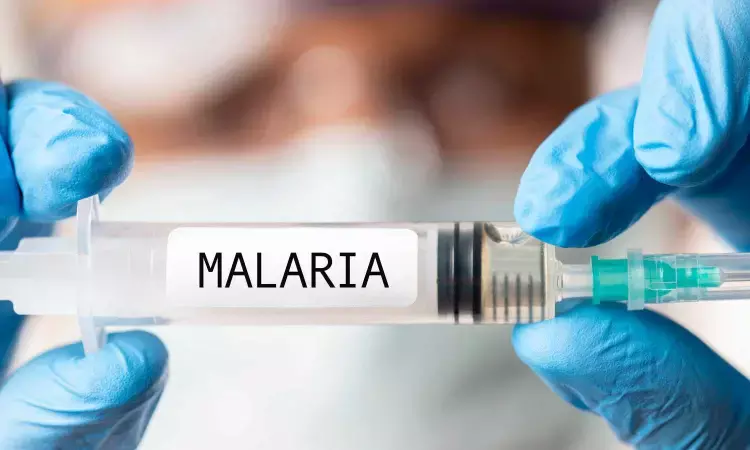- Home
- Medical news & Guidelines
- Anesthesiology
- Cardiology and CTVS
- Critical Care
- Dentistry
- Dermatology
- Diabetes and Endocrinology
- ENT
- Gastroenterology
- Medicine
- Nephrology
- Neurology
- Obstretics-Gynaecology
- Oncology
- Ophthalmology
- Orthopaedics
- Pediatrics-Neonatology
- Psychiatry
- Pulmonology
- Radiology
- Surgery
- Urology
- Laboratory Medicine
- Diet
- Nursing
- Paramedical
- Physiotherapy
- Health news
- Fact Check
- Bone Health Fact Check
- Brain Health Fact Check
- Cancer Related Fact Check
- Child Care Fact Check
- Dental and oral health fact check
- Diabetes and metabolic health fact check
- Diet and Nutrition Fact Check
- Eye and ENT Care Fact Check
- Fitness fact check
- Gut health fact check
- Heart health fact check
- Kidney health fact check
- Medical education fact check
- Men's health fact check
- Respiratory fact check
- Skin and hair care fact check
- Vaccine and Immunization fact check
- Women's health fact check
- AYUSH
- State News
- Andaman and Nicobar Islands
- Andhra Pradesh
- Arunachal Pradesh
- Assam
- Bihar
- Chandigarh
- Chattisgarh
- Dadra and Nagar Haveli
- Daman and Diu
- Delhi
- Goa
- Gujarat
- Haryana
- Himachal Pradesh
- Jammu & Kashmir
- Jharkhand
- Karnataka
- Kerala
- Ladakh
- Lakshadweep
- Madhya Pradesh
- Maharashtra
- Manipur
- Meghalaya
- Mizoram
- Nagaland
- Odisha
- Puducherry
- Punjab
- Rajasthan
- Sikkim
- Tamil Nadu
- Telangana
- Tripura
- Uttar Pradesh
- Uttrakhand
- West Bengal
- Medical Education
- Industry
Promising Results for Late-Liver-Stage Attenuated Malaria Parasite Vaccine in Early Trial

R21 Vaccine Not for India Yet, Government Informs Parliament
Netherlands: A recent trial investigating the safety and efficacy of a late-liver-stage attenuated malaria parasite vaccine has shown promising results, potentially paving the way for a more effective and long-lasting malaria prevention strategy.
The vaccine being tested, known as GA2, involves the use of Plasmodium falciparum, the parasite responsible for the most severe form of malaria. In the small trial, GA2 demonstrated a promising immune response and protective efficacy, highlighting the need for further investigation to confirm these findings. The findings were published online in the New England Journal of Medicine on November 20, 2024.
Currently, licensed malaria subunit vaccines provide only modest, short-lived protection against malaria, which has made it difficult to effectively combat the disease, particularly in regions with high transmission rates. Therefore, Olivia A.C. Lamers, Meta Roestenberg, Leiden University Medical Center, the Netherlands, and colleagues investigate live-attenuated Plasmodium falciparum malaria parasites use as a vaccine strategy. This approach involves inoculating individuals with a weakened form of the malaria parasite, designed to stimulate the immune system without causing the disease. The live-attenuated vaccine is believed to offer more robust immune responses than traditional subunit vaccines, which often target only specific proteins of the parasite.
For this purpose, the researchers conducted a double-blind, controlled clinical trial to assess the safety, side-effect profile, and efficacy of immunization using a second-generation genetically attenuated parasite (GA2). This was a mei2 single knockout P. falciparum NF54 parasite, which extended development into the liver stage. In stage A, participants were exposed to bites from 15 or 50 infected mosquitoes. In stage B, healthy adults were randomly assigned to receive bites from GA2, GA1 (early-arresting parasite), or placebo. After three immunization sessions, the researchers compared the protective efficacy of GA2 against P. falciparum infection with that of GA1 and placebo.
The primary endpoints included the number and severity of adverse events and blood-stage parasitemia following exposure to GA2-infected mosquitoes and controlled human malaria infection.
Based on the study, the researchers reported the following findings:
- Adverse events were similar across all trial groups.
- Protective efficacy against subsequent controlled human malaria infection was observed in 89% of participants in the GA2 group.
- Protective efficacy was observed in 13% of participants in the GA1 group.
- No protective efficacy was observed in the placebo group (0 of 3 participants).
- A significantly higher frequency of P. falciparum–specific polyfunctional CD4+ and Vδ2+ γδ T cells was found in participants who received GA2 compared to those who received GA1.
- GA2 and GA1 induced similar antibody titers targeting the P. falciparum circumsporozoite protein.
"Our findings indicate that parasites that arrest later during the liver stage (GA2) provide better protection compared to early-arresting sporozoites (GA1), representing a promising advancement toward developing a next-generation malaria vaccine," the researchers wrote.
"However, the conclusions of this trial are limited by the small sample size and the extensive range of immunologic analyses conducted. Further studies with larger participant groups are needed to more comprehensively assess the safety profile of GA2," they concluded.
Reference:
DOI: 10.1056/NEJMoa2313892
Dr Kamal Kant Kohli-MBBS, DTCD- a chest specialist with more than 30 years of practice and a flair for writing clinical articles, Dr Kamal Kant Kohli joined Medical Dialogues as a Chief Editor of Medical News. Besides writing articles, as an editor, he proofreads and verifies all the medical content published on Medical Dialogues including those coming from journals, studies,medical conferences,guidelines etc. Email: drkohli@medicaldialogues.in. Contact no. 011-43720751


